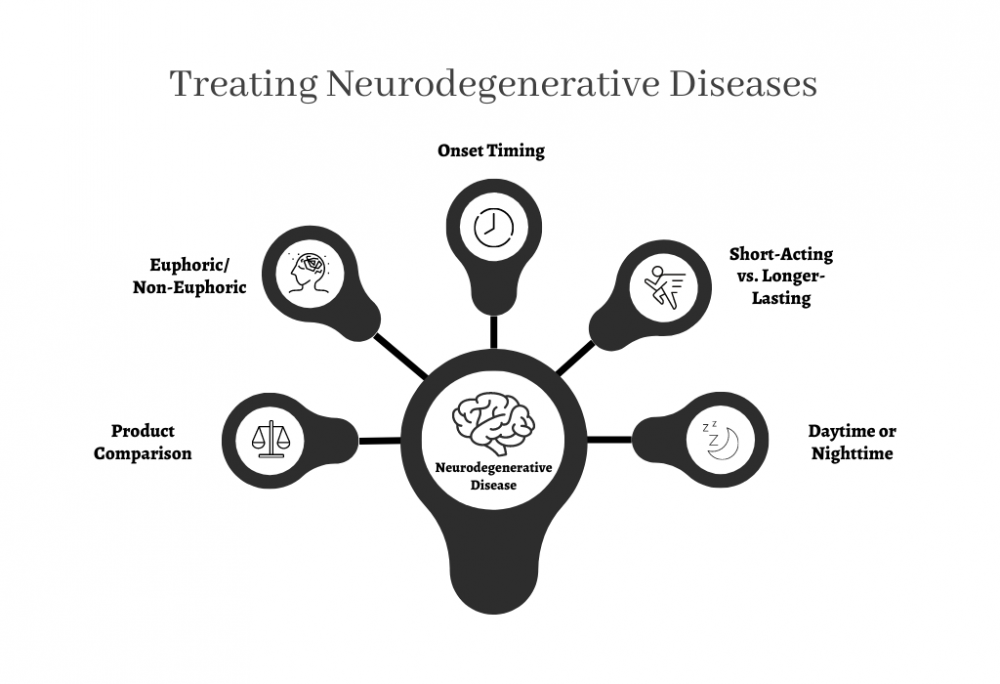
Medical Cannabis and Neurodegenerative Diseases
In recent years, medical cannabis has garnered increasing attention for its potential role in treating neurodegenerative diseases, including Alzheimer’s, Parkinson’s, and multiple sclerosis. These diseases are characterized by the gradual degeneration of nerve cells in the brain and spinal cord, resulting in symptoms such as memory loss, muscle stiffness, and impaired movement. While research is still in the nascent stages, preliminary evidence suggests that certain compounds in cannabis may offer therapeutic benefits for these conditions.
Principal Cannabinoids: THC and CBD
THC (Delta-9-Tetrahydrocannabinol)
THC is best known for its psychoactive effects, but it also holds therapeutic potential. Studies have indicated that THC may act as a neuroprotective agent, potentially safeguarding nerve cells from damage and degeneration—a crucial feature in neurodegenerative diseases.
CBD (Cannabidiol)
CBD, unlike THC, is non-psychoactive and has drawn attention for its myriad potential therapeutic uses, including in neurodegenerative diseases. CBD possesses anti-inflammatory and antioxidant properties, which may help alleviate the inflammation and oxidative stress contributing to neurodegeneration.
Mechanisms of Action: Neuroprotection and Symptom Management
Anti-Inflammatory Effects
Chronic inflammation in neurodegenerative diseases can lead to nerve cell damage and subsequent death. CBD’s anti-inflammatory properties may help mitigate this destructive process, providing a more hospitable environment for neurons.
Neuroprotective Effects
Both THC and CBD have shown neuroprotective effects, potentially shielding neurons from further damage and supporting their survival.
Symptom Relief
Studies have also shown that CBD may offer symptom relief for conditions like Parkinson’s by reducing muscle stiffness and improving motor control. These effects are believed to occur through interactions with specific brain receptors, which modulate neurotransmitter release associated with movement.
Caveats and Further Research
Though the initial findings are promising, more comprehensive studies are needed to fully elucidate the mechanisms and benefits of medical cannabis in treating neurodegenerative diseases. It’s important to note that medical cannabis should only be used under medical supervision, as it can have side effects and may interact with other medications.
Conclusion: A Promising Frontier
Medical cannabis, particularly the cannabinoids THC and CBD, holds promise in the treatment of neurodegenerative diseases. Their neuroprotective, anti-inflammatory, and symptom-relieving properties make them viable candidates for managing conditions such as Alzheimer’s, Parkinson’s, and multiple sclerosis. However, further research is imperative to confirm their efficacy, safety, and optimal dosages.
📗 Note: This diagram is merely the tip of the hempberg. For the full flower of knowledge, check out “The Doctor-Approved Cannabis Handbook” here 📗.

Summary Notes
Exploring Cannabis in Neurodegenerative Disease Management
The potential of medical cannabis in the treatment and management of neurodegenerative diseases represents a promising area of medical research. Compounds such as THC and CBD are being explored for their neuroprotective properties, ability to alleviate symptoms, and potential to slow the progression of conditions like Alzheimer’s, Parkinson’s, and multiple sclerosis.
Clinical trials and patient testimonials provide valuable insights into the therapeutic applications of cannabis, highlighting the importance of understanding dosing, safety, and the mechanisms by which cannabinoids exert their effects. The role of terpenes and the entourage effect in enhancing therapeutic outcomes for neurodegenerative patients is also under investigation.
As the medical community seeks alternatives to conventional treatments, the exploration of cannabis-based therapies offers hope for improved quality of life and symptom management for individuals affected by neurodegenerative diseases. Ongoing research, along with advancements in legal and regulatory frameworks, will be crucial in defining the role of cannabis in neurodegenerative disease therapy, ensuring patients have access to safe, effective, and personalized treatment options.

